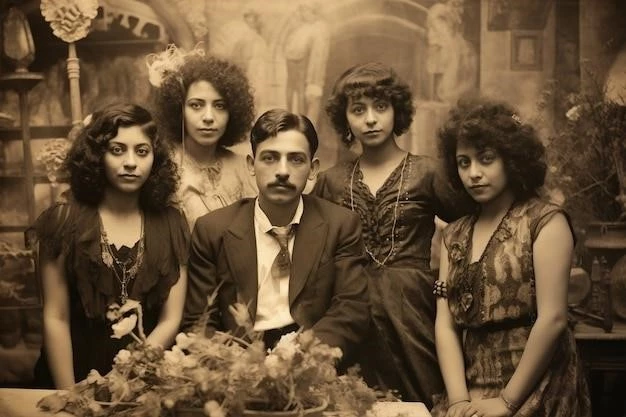The 20th century was a period of unprecedented change and upheaval, marked by remarkable advancements in science, technology, and human thought. It was also a century of devastating conflicts and profound social and political transformations. At the heart of these pivotal moments were individuals whose actions, ideas, and leadership left an indelible mark on the course of history. Narrowing down a definitive list of the most influential figures of this complex era is a daunting task, but here are ten individuals whose impact resonated globally:
1. Albert Einstein (1879-1955)
Widely regarded as the most influential physicist of the 20th century, Albert Einstein revolutionized our understanding of the universe. His theory of relativity, encompassing both special and general relativity, upended Newtonian physics and provided a new framework for comprehending gravity, space, and time. Einstein’s groundbreaking work laid the foundation for numerous scientific advancements, including the development of nuclear energy and our understanding of the cosmos.
2. Franklin D. Roosevelt (1882-1945)
The 32nd President of the United States, Franklin D. Roosevelt, guided the nation through two of its greatest crises: the Great Depression and World War II. His New Deal programs, implemented to combat the economic hardships of the 1930s, fundamentally reshaped the role of government in American society. Roosevelt’s leadership during World War II, forging international alliances and galvanizing the nation against fascism, solidified the United States’ position as a global superpower.
3. Mahatma Gandhi (1869-1948)
A preeminent figure in the Indian independence movement, Mahatma Gandhi championed a philosophy of nonviolent resistance, or Satyagraha. His unwavering commitment to peaceful civil disobedience inspired millions and ultimately led to India’s liberation from British rule in 1947. Gandhi’s principles of nonviolence continue to resonate globally٫ serving as a beacon for peaceful social change and resistance against oppression.
4. Winston Churchill (1874-1965)
As Prime Minister of the United Kingdom during World War II, Winston Churchill’s leadership proved instrumental in rallying the British people against Nazi Germany. His unwavering resolve and stirring speeches, including his iconic “We shall fight on the beaches” address, instilled hope and defiance during Britain’s darkest hour. Beyond the war, Churchill was a prolific writer and historian, his works leaving a lasting legacy on 20th-century thought.

5. Marie Curie (1867-1934)
A pioneer in the field of radioactivity, Marie Curie made groundbreaking discoveries that transformed physics and chemistry. She was the first woman to win a Nobel Prize, the first person and only woman to win the Nobel Prize twice, and the only person to win the Nobel Prize in two different scientific fields. Her work on radioactivity, while crucial to advancements in medicine and other fields, ultimately led to her death from aplastic anemia, a testament to her dedication and the risks associated with scientific discovery.

6. Alan Turing (1912-1954)
Considered the father of theoretical computer science and artificial intelligence, Alan Turing made seminal contributions to the development of the modern computer. His work during World War II, breaking the German Enigma code, proved crucial to Allied victory. Turing’s concept of the Turing machine laid the foundation for the development of the modern computer, while his work on artificial intelligence continues to shape the field today. Tragically, Turing’s life was cut short due to persecution for his homosexuality, a stark reminder of the prejudice and intolerance that marred the 20th century.
7. Martin Luther King Jr. (1929-1968)
A pivotal leader of the American Civil Rights Movement, Martin Luther King Jr. advocated for racial equality and an end to segregation through nonviolent resistance. Inspired by Mahatma Gandhi, King’s powerful speeches and unwavering commitment to social justice galvanized the nation and led to the passage of landmark legislation, including the Civil Rights Act of 1964 and the Voting Rights Act of 1965. His legacy continues to inspire generations of activists fighting for equality and social justice.
8. Nelson Mandela (1918-2013)
A towering figure in the fight against apartheid in South Africa, Nelson Mandela dedicated his life to achieving racial equality. Imprisoned for 27 years for his activism, Mandela emerged as a symbol of hope and resistance against oppression. His leadership following his release in 1990, guiding South Africa through a peaceful transition to multiracial democracy, earned him global admiration and the Nobel Peace Prize in 1993. Mandela’s unwavering commitment to justice and reconciliation continues to inspire the world.
9. Sigmund Freud (1856-1939)
Considered the father of psychoanalysis, Sigmund Freud revolutionized our understanding of the human mind. His theories on the unconscious mind, the significance of dreams, and the impact of childhood experiences on adult behavior had a profound impact on psychology, literature, art, and culture. While some of Freud’s theories have been challenged and revised over time, his work remains influential in the field of psychology and beyond.
10. Wright Brothers (Wilbur 1867-1912٫ Orville 1871-1948)
American inventors and pioneers of aviation, the Wright brothers, Wilbur and Orville, made history with their first successful flight of a heavier-than-air powered aircraft in 1903. Their invention٫ born from years of experimentation and a passion for innovation٫ transformed transportation٫ ushering in the age of air travel and fundamentally changing the way we perceive distance and connectivity. The Wright brothers’ legacy extends beyond aviation٫ serving as a testament to the power of human ingenuity and the boundless possibilities of technological advancement.
This list, by no means exhaustive, represents a small fraction of the individuals who shaped the 20th century. It serves as a reminder of the complex and interconnected nature of history, where individuals from diverse fields and backgrounds can have a profound and lasting impact on the course of human events.










